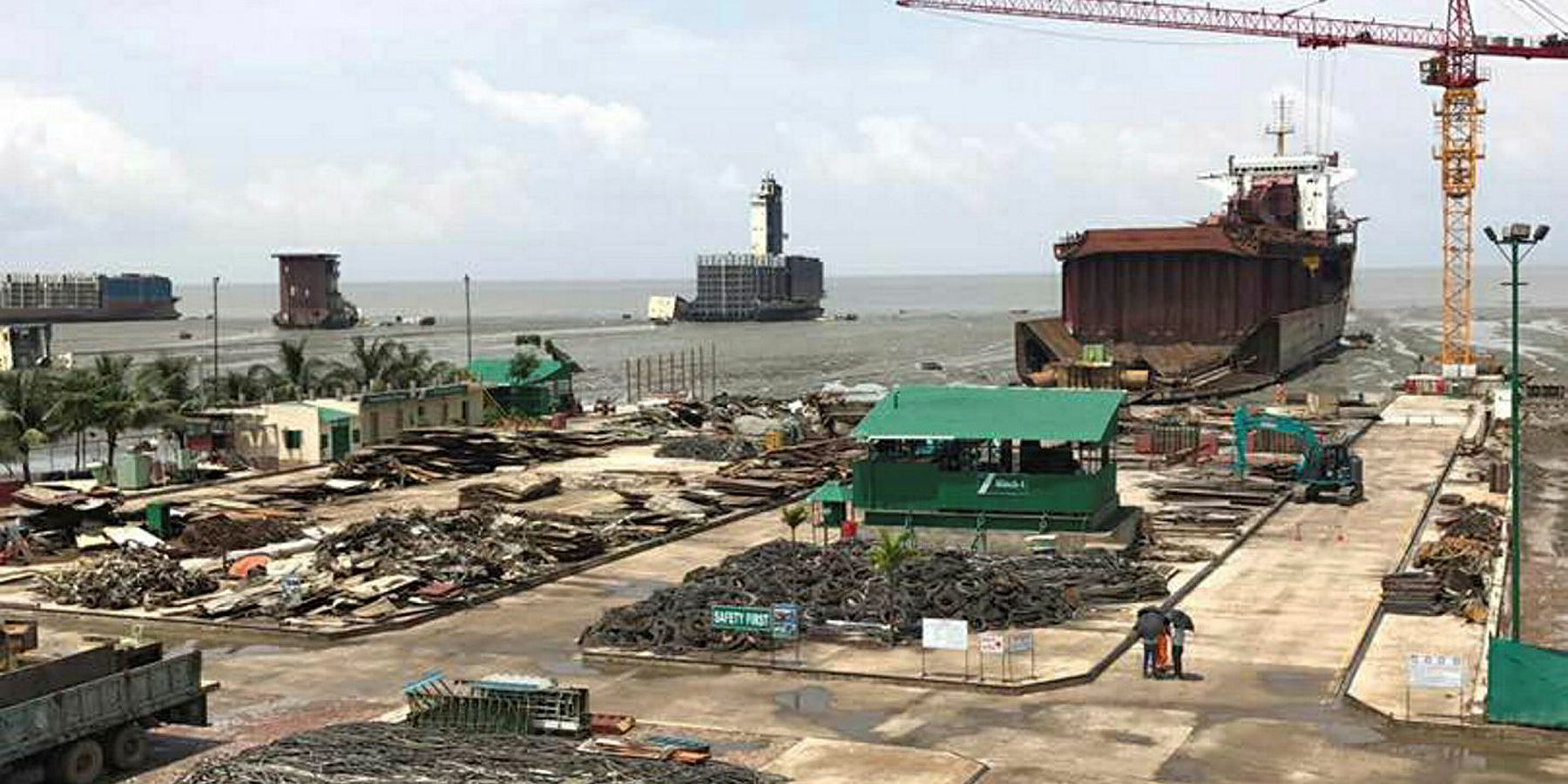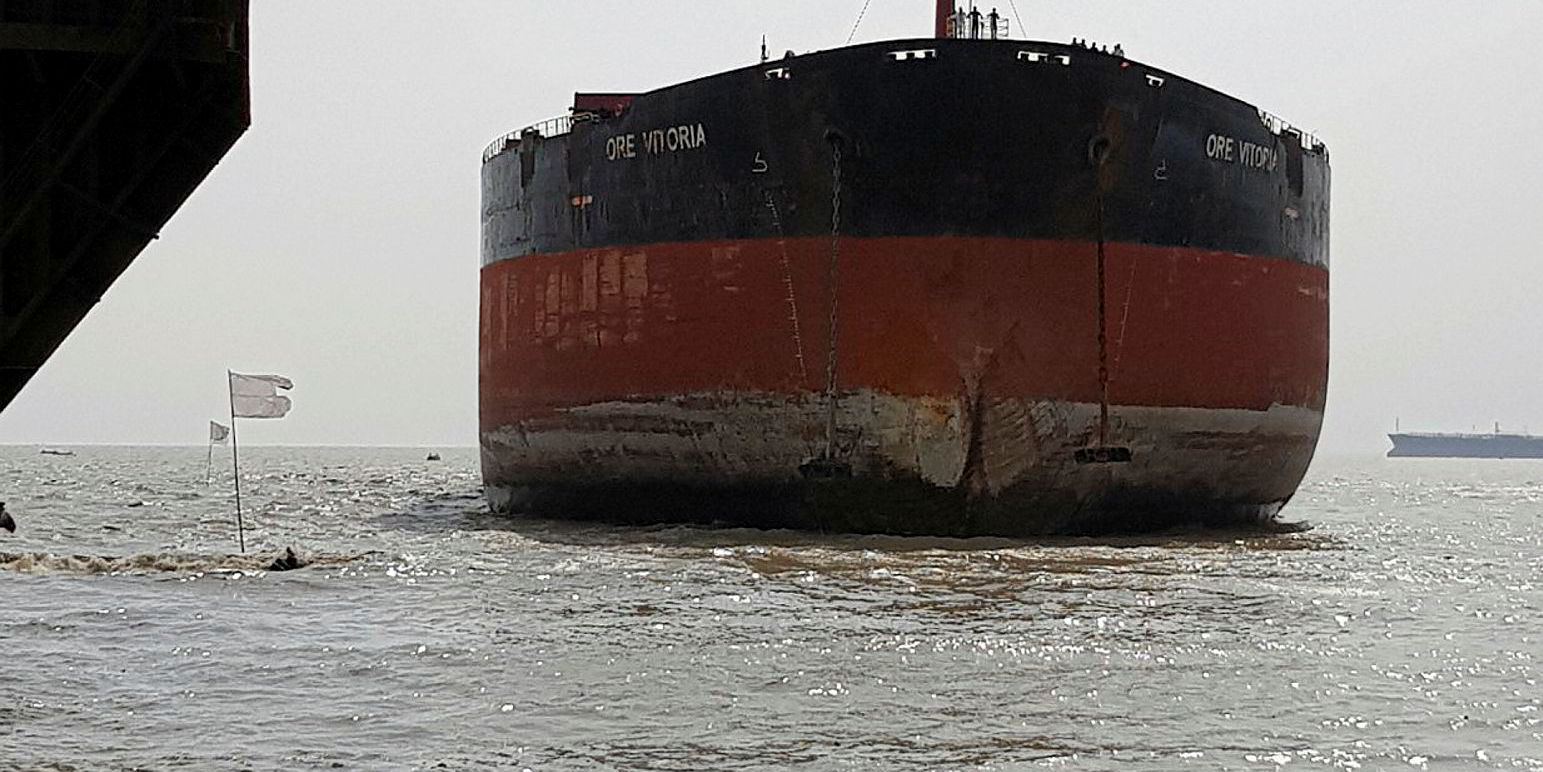The demolition of a Vale VLOC at Bangladeshi shipbreaker PHP Family could help pave the way for the country to follow its neighbour, India, in improving the safety and environmental performance of shipyards.
The 233,000-dwt Ore Vitoria (built 1989) arrived at PHP’s yard in Sitakunda this week for the company’s first 'green' demolition project.
Both the yard and vessel meet the requirements set out by the Hong Kong Convention for the Safe and Environmentally Sound Recycling of Ships.
In preparation for the six-month demolition job, Vale identified and recorded hazardous materials onboard the vessel, qualifying the ship for a “green passport” under the convention’s guidelines.
PHP was recently awarded a statement of compliance with the convention from Italian classification society Rina.

PHP managing director Zahirul Islam said that while the company had won a discount on the price of the vessel, it hopes to win far greater rewards once it has proven its green credentials.
“We paid $440 per long tonne. Being our first Hong Kong Convention-complaint vessel, we had to be a bit aggressive with pricing, but still the vessel was cheaper by $5 per tonne,” he said.
“We took this as an investment. We hope from now on more shipowners will feel confident in sending their vessels to PHP.”
The green market’s potential is huge. There are around 50 VLOCs of a similar age to the Ore Vitoria controlled by Vale that are coming up for demolition and will presumably require the same standards of demolition.
In the spotlight
PHP’s performance on the job will be closely watched. Vale will be sending a team to PHP for part of the demolition, while PHP will compile a monthly progress report for the Brazilian mining giant.
Environmental campaigners will also be watchful. They claim a statement of compliance may verify a yard’s ability to demolish in line with the Hong Kong Convention, but it does not certify the convention’s standards will be applied on a job.
They also say that while many yards including PHP have impermeable concrete floors for cutting, it is impossible to stop hull blocks polluting the intertidal zone in the initial dismantling phase.

The intertidal zone is the area between the tide and the impermeable floor.
PHP is confident that it can deliver on its green ambitions. Not only is it the only yard in South East Asia to have a tower crane that can transport blocks across the intertidal zone, but it has barge-mounted and magnetic cranes that the PHP managing director believes will be sufficient to protect the intertidal zone.
“We will ensure total protection of the environment throughout the recycle process,” he said.
Safety training
He added that workers’ safety would also be protected.
“We already have the details of hazardous material on board and this will help us remove and transport hazardous material safely, which will ensure workers’ safety.”
And workers have been trained in best practice at the Bangladesh Ship Breakers Association and in-house, he explained.
The job is critical for PHP. It has invested heavily in its ability to compete in the green demolition market.
But the job is also significant for Bangladesh. The green South East Asian ship demolition market is dominated by India, with PHP the only Bangladeshi yard to be awarded a Hong Kong Convention statement of compliance to date.
Industry sources are now hopeful that if PHP makes a success of the move, it is likely to encourage others in the country to follow suit



